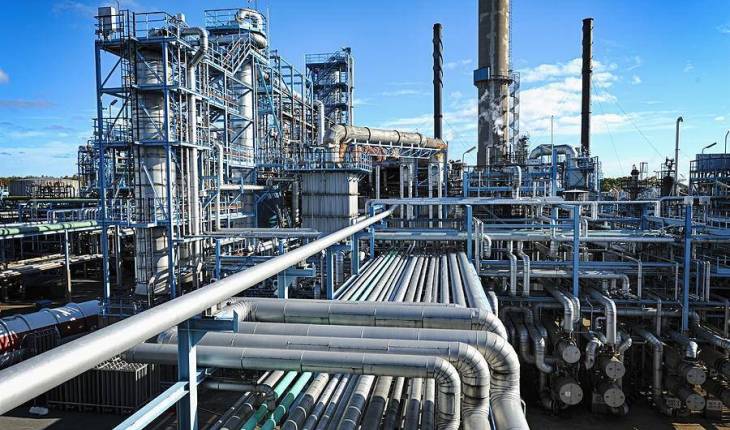- Kaduna Refinery Dormant, PH, Warri Producing Below 30% — NNPC
There seems to be no end in sight to the downward operational performance of Nigeria’s refineries since the beginning of 2017 despite several interventions made to reinvigorate the facilities by the Nigerian National Petroleum Corporation.
The latest monthly oil and gas report released by the national oil firm showed that the cumulative capacity utilisation of the nation’s three refineries dropped further from 12.73 per cent in June to 11.94 per cent in July 2017.
On individual performance, the Kaduna Refining and Petrochemical Company remained dormant for the two consecutive months as it processed no crude oil in the period under review.
Other refineries, Port Harcourt Refining Company and Kaduna Refining and Petrochemical Company, also performed far below expectation.
While the WRPC moved up marginally in its performance, processing 1.87 per cent of crude oil in July, as against the zero output it recorded in June, the PHRC’s capacity utilisation dropped from 26.98 per cent in June to 24.18 per cent in July.
Going by the data provided by the NNPC, no refinery was able to perform up to 30 per cent, as none of them could utilise up to half of the crude oil allocated to them in July this year, as had been the case in many other preceding months.
Media had exclusively reported in September that the performance of the facilities with respect to the capacity utilisation dropped by 44.87 per cent, after an analysis of their activities showed a decline in output from 20.09 per cent in May to 12.73 per cent in June.
Further findings by our correspondent also showed that the facilities had been recording consecutive monthly decline with respect to their cumulative capacity utilisation since January this year.
After recording a consolidated capacity utilisation of 36.73 per cent in January, the performance of the facilities maintained decline to 13.46 per cent in March.
The performance moved up to 24.59 per cent in April 2017, but this was not sustained as it crashed on a monthly basis till it dropped to 11.94 per cent in July, which was their latest operational performance as released by the NNPC.
An analysis of the corporation’s latest data showed that the total crude processed by the three refineries dropped from 231,836 metric tonnes in June to 224,584 MT in July..
Their losses increased from 2.44 per cent in June to close at 2.59 per cent in July, while their cumulative plant consumption dropped to 8.30 per cent in the month under review, as against the 10.92 per cent that was recorded in the preceding month.
As part of plans to revamp the refineries, the NNPC on several occasions had stated that its 12 Business Focus Areas would help address the shortcomings at the facilities.
It had repeatedly stated that BUFA would see to the upgrading of existing refineries and creating the opportunity for refining expansion; focusing on renewable energy and frontier exploration; revamping the oil and gas infrastructure; pursuing profitable ventures and common services, among others.
In September, the NNPC disclosed that it would shortly close down three of its refineries for a comprehensive rehabilitation aimed at bringing them back to their nameplate production capacities.
The NNPC’s Group Managing Director, Maikanti Baru, told reporters in Abuja that the shutdown of the refineries would allow the corporation to undertake their rehabilitation in ways that were different from what had been done in the past.
According to Baru, the refineries will come back on stream as new facilities when the corporation concludes the rehabilitation project ahead of the country’s plan to exit petroleum products importation in 2019.
“As you know, it has been the perception of the public that the repairs of the refineries are never done thoroughly. So this time, our intention is to shutdown the refineries when we are ready, and then fully bring them back to what they should be as new refineries,” the GMD had said.

 Forex4 weeks ago
Forex4 weeks ago
 Naira3 weeks ago
Naira3 weeks ago
 Billionaire Watch3 weeks ago
Billionaire Watch3 weeks ago



 Naira3 weeks ago
Naira3 weeks ago






 Naira3 weeks ago
Naira3 weeks ago


 Naira2 weeks ago
Naira2 weeks ago






 Naira2 weeks ago
Naira2 weeks ago
 Commodities4 weeks ago
Commodities4 weeks ago























